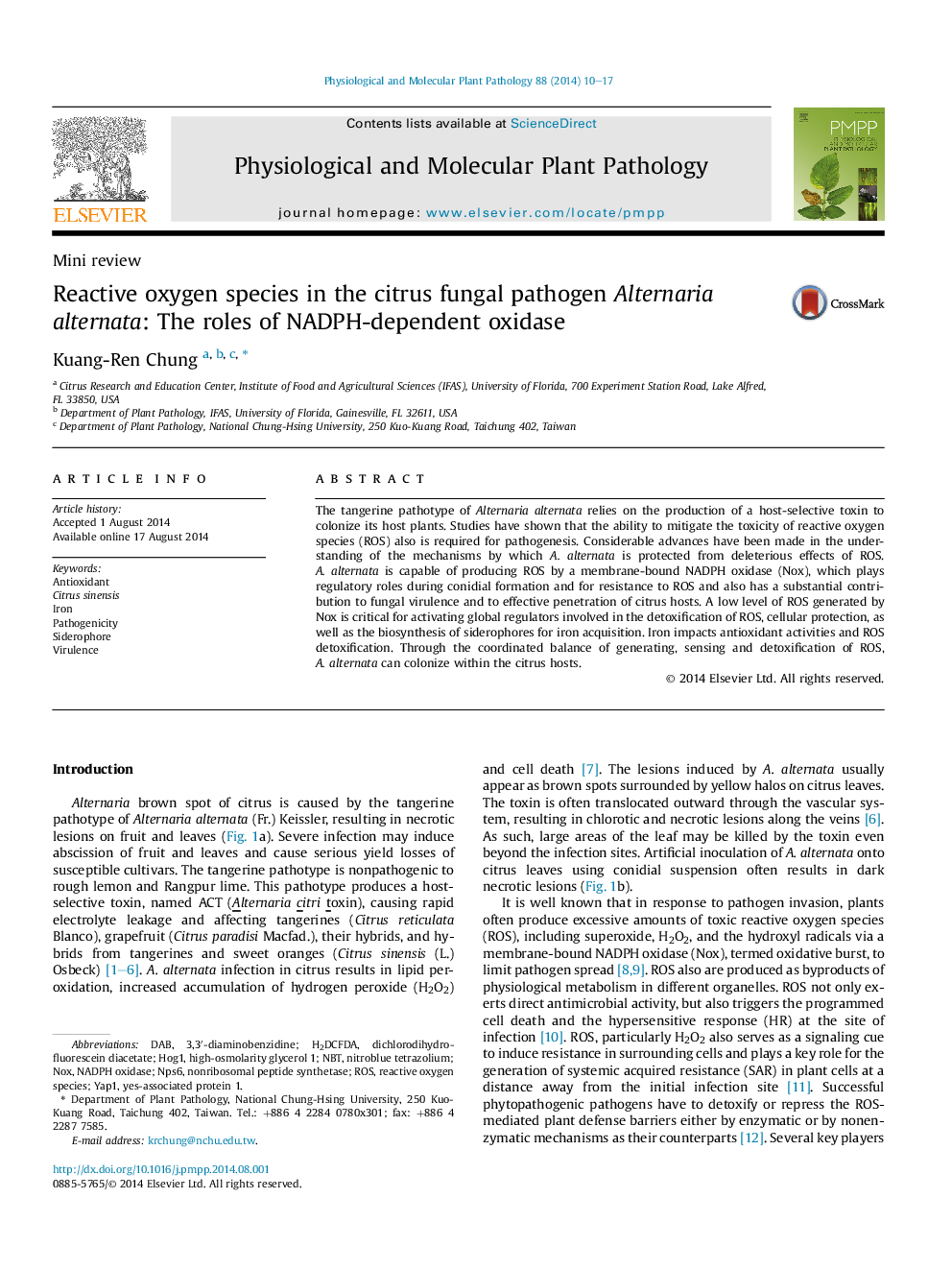| Article ID | Journal | Published Year | Pages | File Type |
|---|---|---|---|---|
| 2836297 | Physiological and Molecular Plant Pathology | 2014 | 8 Pages |
•Alternaria alternata produces toxic ROS via a membrane-bound NADPH oxidase (Nox).•Nox is required for conidiogenesis, ROS resistance, and full virulence in citrus.•Nox regulates global regulators Yap1 and Hog1 involved in cellular protection.•Nox also is required for the biosynthesis of siderophores for iron acquisition.•Iron impacts antioxidant activities and ROS detoxification.
The tangerine pathotype of Alternaria alternata relies on the production of a host-selective toxin to colonize its host plants. Studies have shown that the ability to mitigate the toxicity of reactive oxygen species (ROS) also is required for pathogenesis. Considerable advances have been made in the understanding of the mechanisms by which A. alternata is protected from deleterious effects of ROS. A. alternata is capable of producing ROS by a membrane-bound NADPH oxidase (Nox), which plays regulatory roles during conidial formation and for resistance to ROS and also has a substantial contribution to fungal virulence and to effective penetration of citrus hosts. A low level of ROS generated by Nox is critical for activating global regulators involved in the detoxification of ROS, cellular protection, as well as the biosynthesis of siderophores for iron acquisition. Iron impacts antioxidant activities and ROS detoxification. Through the coordinated balance of generating, sensing and detoxification of ROS, A. alternata can colonize within the citrus hosts.
